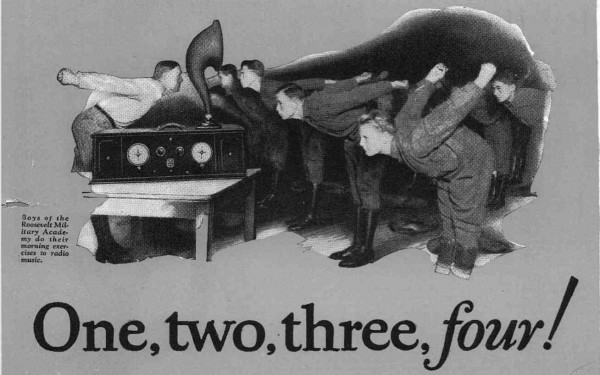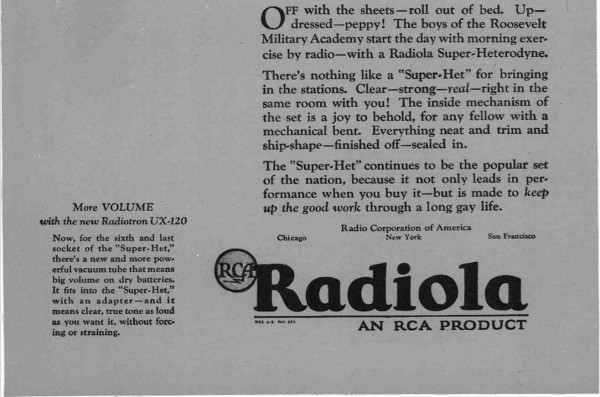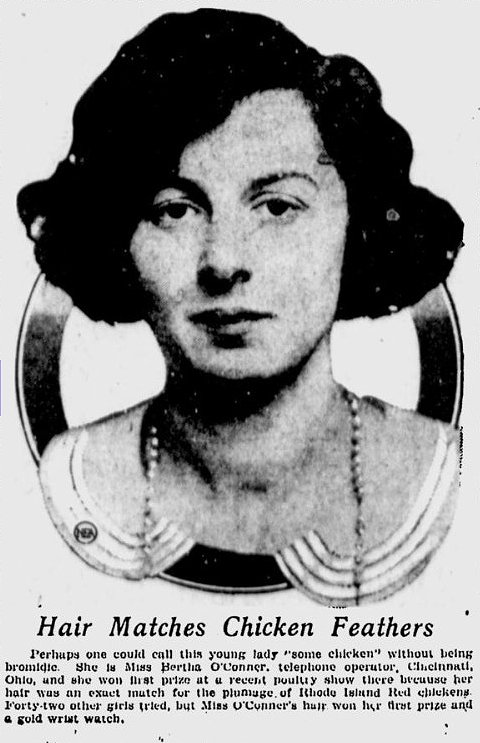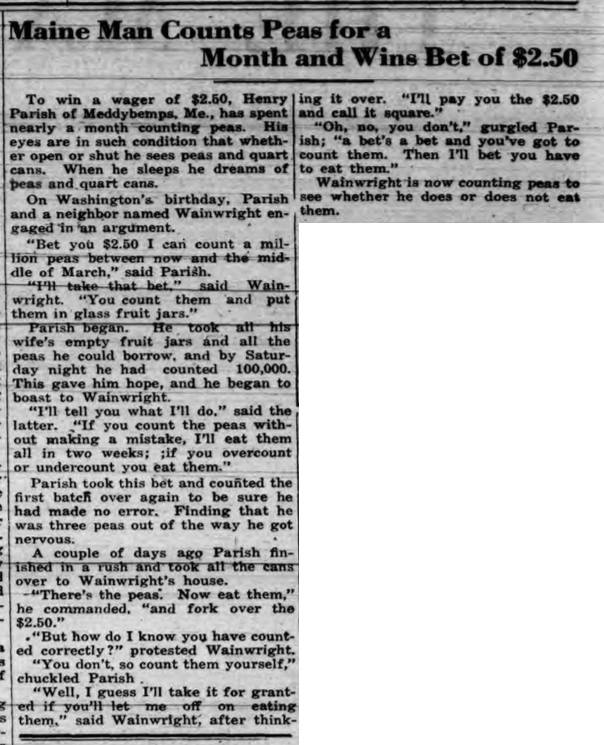1920s
Stockings for Camels
In the early 1960s, Alan Abel ran a long-running hoax involving an organization (The Society for Indecency to Naked Animals) whose members wanted to put clothes on all the naked animals in the world. So I was amused to discover there was a similar, but non-hoax, campaign back in 1926. The "philanthropic Englishwoman" Mrs. F.K. Hosall spearheaded an effort to get women to donate their old stockings so they could be worn by the donkeys and camels of north Africa. However, it wasn't exactly similar, because it sounds like Mrs. Hosall had a sensible reason to put stockings on the camels — to prevent fly bites.Source: The Alamance Gleaner (Graham, N.C.) - Feb 11, 1926.

Posted By: Alex - Tue Jan 20, 2015 -
Comments (7)
Category: Animals, Fashion, 1920s
Women Becoming Dumb
Back in 1926, art historian and cultural critic Dudley Crafts Watson sounded the alarm on a looming problem. The modern American woman, he believed, was fast becoming a "statis dumb bunny" because labor-saving devices were allowing her too much free time which she spent amusing herself with frivolous entertainment, instead of improving her mind.Today, Watson is best known because he became the guardian of Orson Welles. His warning about the dumbing down of our culture actually sounds like what a lot of cultural critics say. The only unusual thing about it is his focus on women alone.

The Ogden Standard-Examiner - Apr 2, 1926

Dudley Crafts Watson
Posted By: Alex - Mon Jan 19, 2015 -
Comments (14)
Category: Culture and Civilization, Stupidity, 1920s
Can-Fed Husbands

Shamokin News-Dispatch - Apr 1927
From Songs of a Housewife, by Marjorie Rawlings. It's an odd book of poetry, recording in verse all the various complaints and problems of 1920's housewives, such as husbands who complained about being given canned food.
Available at Amazon
Posted By: Alex - Fri Jan 16, 2015 -
Comments (5)
Category: Wives, Poetry, 1920s
Tony Sarg’s Marionettes: “In the Orient”
Posted By: Paul - Fri Dec 26, 2014 -
Comments (9)
Category: Puppets and Automatons, 1920s
Santa takes a cigarette break
The kids can wait. He needs his nicotine fix!
Source: Popular Science - Dec 1920. via What the Apothecary Ordered.
Posted By: Alex - Tue Dec 23, 2014 -
Comments (7)
Category: Holidays, 1920s
Follies of the Madmen #237


Original ad here.
Posted By: Paul - Fri Dec 19, 2014 -
Comments (11)
Category: Business, Advertising, Products, Radio, 1920s, Bodybuilding
I Heard the Voice of a Porkchop
Man so hungry he experiences auditory hallucinations.
Posted By: Paul - Wed Dec 10, 2014 -
Comments (7)
Category: Anthropomorphism, Food, Music, 1920s, Stomach
Natural Body Brace

Unnatural is more like it!
Original ad here.
Posted By: Paul - Sun Dec 07, 2014 -
Comments (4)
Category: Body, Injuries, Inventions, 1920s
Miss Chicken Feathers
A gold watch is actually a pretty nice prize for having hair most like that of a chicken's feathers.
Source: Milwaukee Journal - Jan 16, 1924
Posted By: Alex - Fri Nov 28, 2014 -
Comments (5)
Category: 1920s
Maine man counts one million peas to win bet of $2.50
Life moved at a slower pace in Meddybemps, Maine back in 1922. Probably still does. According to Wikipedia, the 2010 census listed Meddybemps as having a population of only 157.To win a wager of $2.50, Henry Parish of Meddybemps, Me., has spent nearly a month counting peas. His eyes are in such condition that whether open or shut he sees peas and quart cans. When he sleeps he dreams of peas and quart cans.
On Washington's birthday, Parish and a neighbor named Wainwright engaged in an argument.
"Bet you $2.50 I can count a million peas between now and the middle of March," said Parish.
"I'll take that bet," said Wainwright. "You count them and put them in glass fruit jars."
Parish began. He took all his wife's empty fruit jars and all the peas he could borrow, and by Saturday night he had counted 100,000. This gave him hope, and he began to boast to Wainwright.
"I'll tell you what I'll do," said the latter. "If you count the peas without making a mistake, I'll eat them all in two weeks; if you overcount or undercount you eat them."
Parish took this bet and counted the first batch over again to be sure he had made no error. Finding that he was three peas out of the way he got nervous.
A couple of days ago Parish finished in a rush and took all the cans over to Wainwright's house.
"There's the peas. Now eat them," he commanded, "and fork over the $2.50."
"But how do I know you have counted correctly?" protested Wainwright.
"You don't, so count them yourself," chuckled Parish.
"Well, I guess I'll take it for granted if you'll let me off on eating them," said Wainwright, after thinking it over. "I'll pay you the $2.50 and call it square."
"Oh, no, you don't," gurgled Parish; "a bet's a bet and you've got to count them. Then I'll bet you have to eat them."
Wainwright is now counting peas to see whether he does or does not eat them.
Posted By: Alex - Mon Nov 24, 2014 -
Comments (8)
Category: Boredom, 1920s

| Who We Are |
|---|
| Alex Boese Alex is the creator and curator of the Museum of Hoaxes. He's also the author of various weird, non-fiction, science-themed books such as Elephants on Acid and Psychedelic Apes. Paul Di Filippo Paul has been paid to put weird ideas into fictional form for over thirty years, in his career as a noted science fiction writer. He has recently begun blogging on many curious topics with three fellow writers at The Inferior 4+1. Contact Us |





